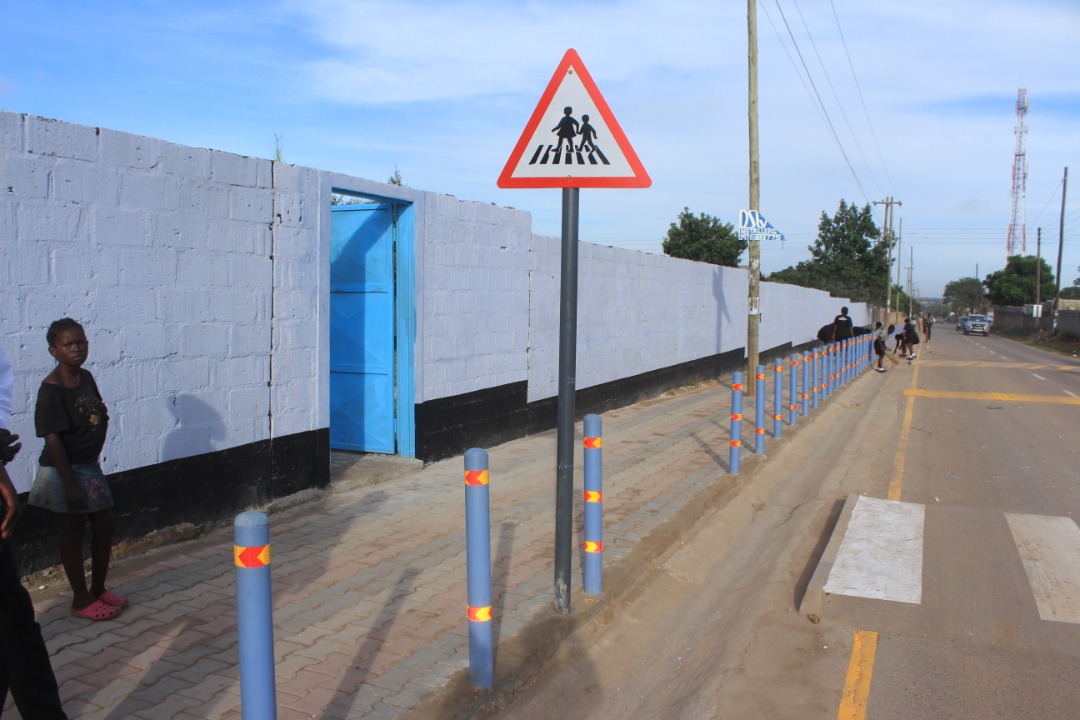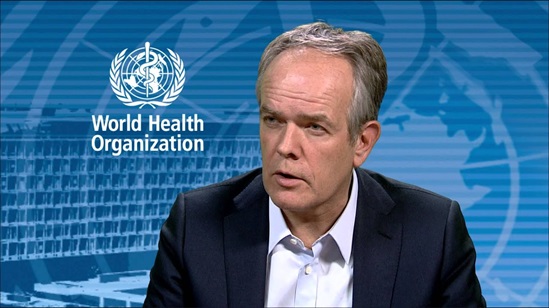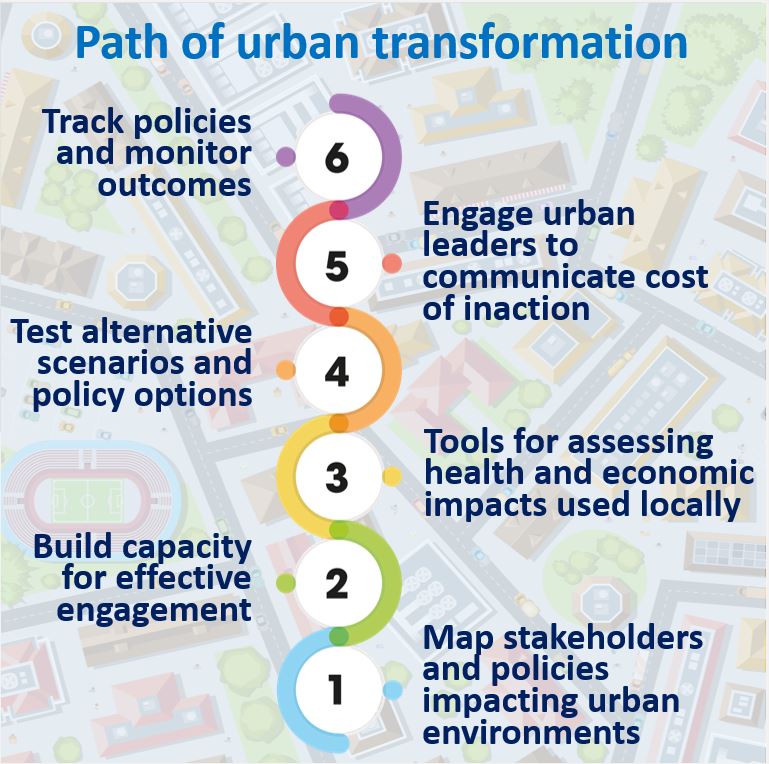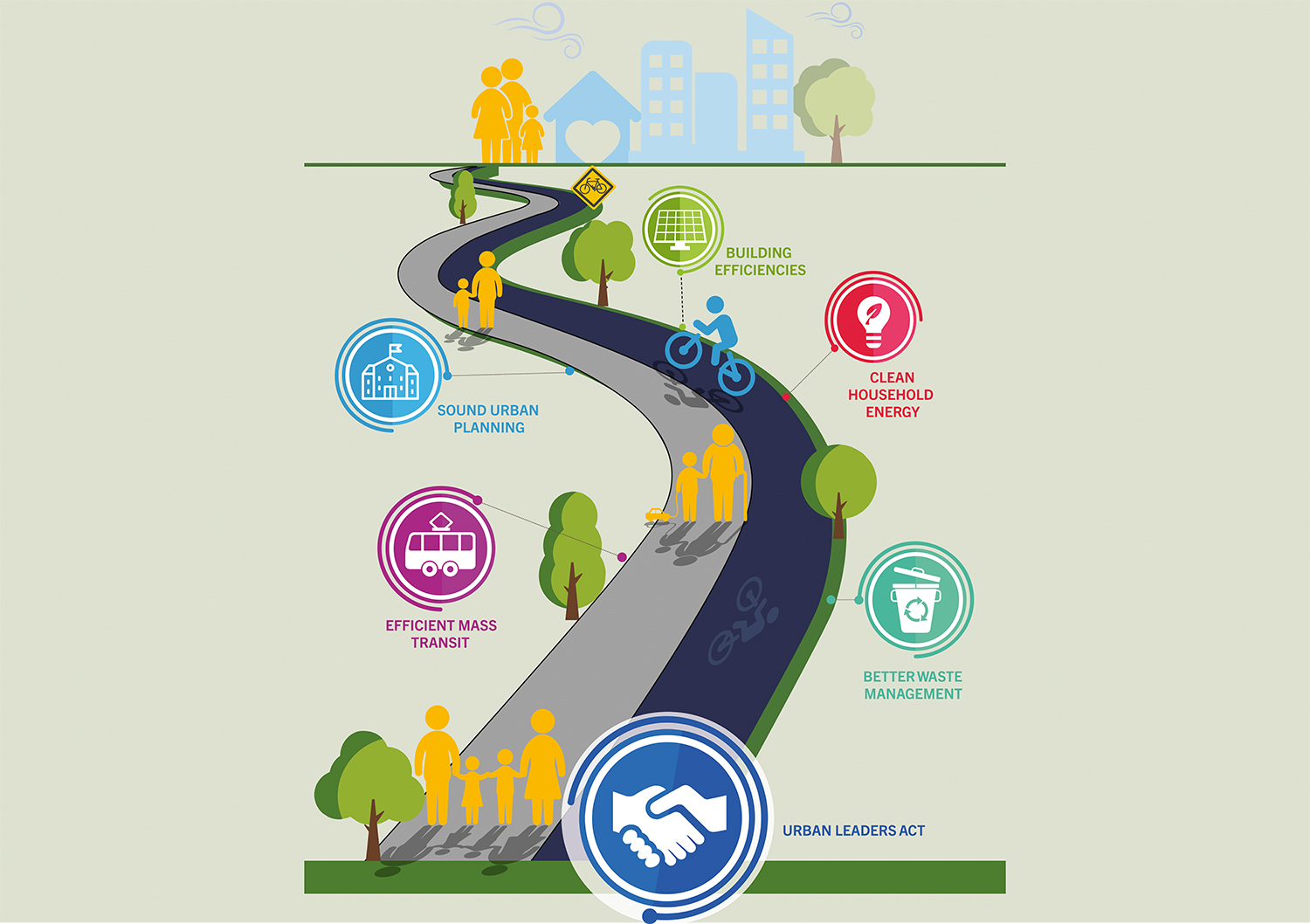Providing cross-cutting solutions to improve health in urban areas
The health and well-being of urban populations can be determined by social, environmental and economic factors strongly influenced by urban systems, which consist of various sectors including housing, transport, energy, spatial planning, water and sanitation, urban agriculture and waste management. Action on a particular issue can affect many others in unpredictable and unintended ways, which can hinder the achievement of shared goals relating to urban health.
Recognizing the complexity of urban dynamics and its linkages to health, WHO works to provide coordinated and holistic solutions to make the most of synergies across urban sectors for improved health in cities. WHO’s frameworks, norms, tools and guidance on urban health and a wide range of relevant topics will continue to support policy-makers, health professionals and urban practitioners in putting the holistic urban health approaches into practice.











